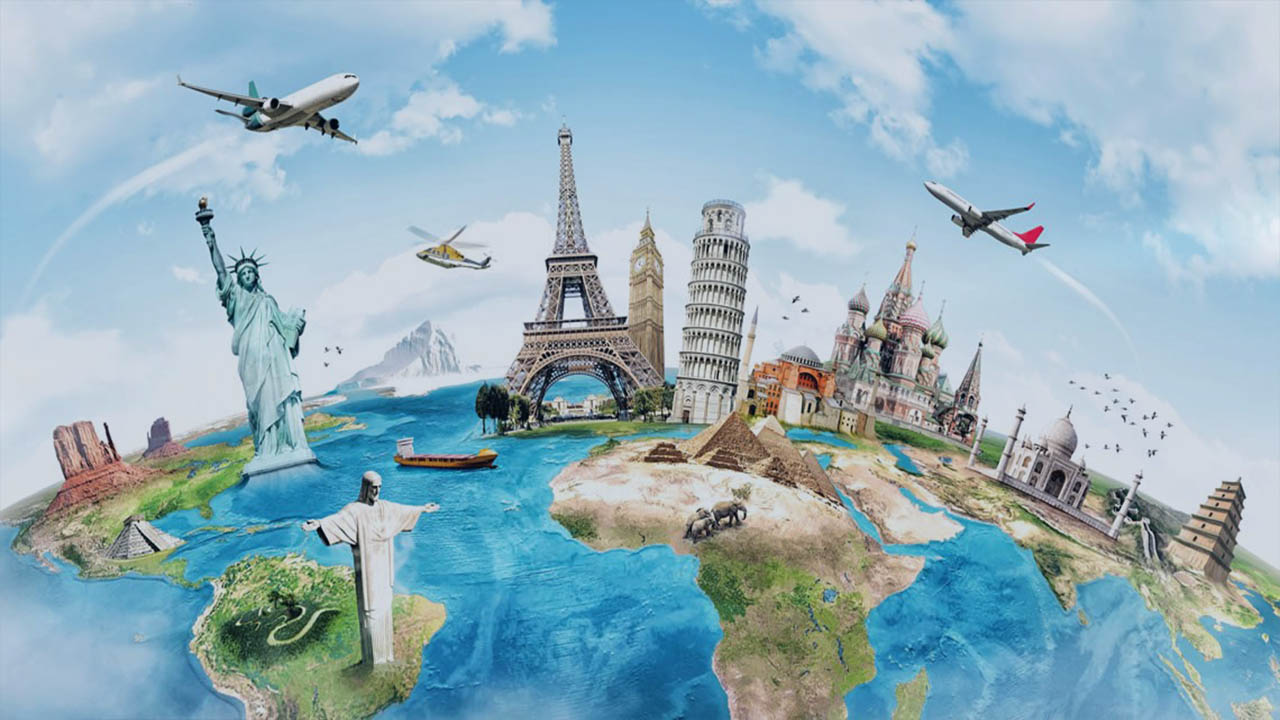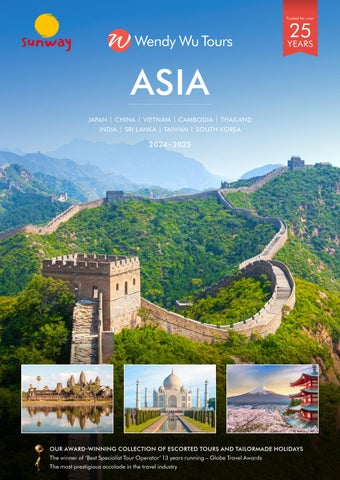When it comes to exploring new destinations, understanding the distinction between “tour” and “tourism” is vital. Many use these terms interchangeably, but they hold distinct meanings. A “tour” typically refers to a specific journey or trip organized by a company or individual to visit various places within a set duration. On the other hand, “tourism” encompasses the entire industry and activities related to traveling for leisure, business, or other purposes. Unveiling these key differences sheds light on how we perceive travel experiences and the tourism industry as a whole. In this blog, we will delve deeper into the nuances of tour vs. tourism and highlight their significance in the realm of travel.

Understanding Tour and Tourism
When discussing the difference between tour and tourism, it’s essential to recognize that although these terms are often used interchangeably, they actually represent distinct concepts in the travel industry. Tour generally refers to a specific journey or trip, typically organized and guided by a tour operator. On the other hand, tourism encompasses a broader perspective, involving the activities of individuals traveling to destinations for leisure, business, or other purposes.
The Role of Tour
Within the realm of travel, a tour is a prearranged package that includes transportation, accommodation, and a planned itinerary. Tours are designed to offer convenience and structure to travelers, allowing them to explore various destinations with the guidance of experienced professionals. These organized excursions often cater to specific interests or themes, such as cultural, adventure, or wildlife tours.
The Essence of Tourism
In contrast, tourism is a broader concept that encompasses a wide range of activities related to travel. Tourism involves the movement of individuals to different locations outside their usual environment for recreational, educational, or personal reasons. It encompasses various aspects, including transportation, accommodation, attractions, and support services that cater to tourists’ needs.
- Tourism promotes economic growth
- Tourism fosters cultural exchange
- Tourism contributes to environmental conservation

Key Features of Tours
When considering the key features of tours, several components stand out, enhancing the overall experience for travelers. Tours often provide a structured itinerary curated by experts in the field to offer a seamless exploration of a destination.
Expert Guides
One of the central aspects of tours is the presence of knowledgeable guides who not only provide valuable insights into the history and culture of the location but also ensure the safety and enjoyment of the participants.
Diverse Activities
Tours offer a diverse range of activities, catering to different interests and preferences. Whether it’s cultural excursions, outdoor adventures, culinary experiences, or relaxation retreats, tours are designed to accommodate various tastes.
- Excursions to historical landmarks.
- Adventure activities like hiking or snorkeling.
- Culinary tours exploring local gastronomy.
- Wellness retreats for relaxation and rejuvenation.
Tourism is a diverse industry that offers a wide range of experiences for travelers. Understanding the key features of tourism can help individuals grasp the significance and impact of this sector on a global scale.
Cultural Exchange
One of the fundamental aspects of tourism is the opportunity for cultural exchange. Travelers have the chance to immerse themselves in the traditions, customs, and lifestyles of different regions, fostering mutual understanding and respect.
Economic Development
Tourism plays a crucial role in economic development by creating jobs, generating revenue, and supporting local businesses. Destinations with thriving tourism industries often experience growth in infrastructure and services.
Exploring New Territories
A tour typically involves a structured journey with a specific itinerary, often led by a guide, focusing on visiting various destinations within a limited time frame. It aims to educate participants about the attractions and culture of a place through curated experiences.
Embracing Travel Experiences
Tourism, on the other hand, encompasses a broader concept of travel, emphasizing the overall experience of exploring diverse cultures and environments. It encourages travelers to immerse themselves in the destination, emphasizing personal growth and cultural exchange.
Impact on Local Communities
One key difference between tours and tourism lies in their impact on local communities. When tourists visit a destination, they often contribute to the local economy by spending money on accommodations, dining, and souvenirs. This influx of tourism dollars can help support local businesses and create jobs for residents.
Preservation of Culture
**Tourism** plays a crucial role in preserving the culture and heritage of a community. By showcasing traditional practices, art forms, and cuisines to visitors, local communities can **promote** and **sustain** their cultural identity.
- Traditional Festivals
- Artisanal Crafts
- Culinary Delights
Community Engagement
**Tour** operators often collaborate with local communities to offer authentic experiences to travelers. This not only provides visitors with a deeper understanding of the destination but also **empowers** locals to share their stories and traditions.
Moreover, sustainable tourism initiatives can help **enhance** infrastructure and services in **underserved** areas, benefiting residents in the long run.
Personal Experience vs. Industry Perspective
When exploring the difference between tours and tourism, it is essential to consider the contrast between personal experience and industry perspective. Personal experience refers to an individual’s firsthand encounters during a trip, while the industry perspective focuses on the broader trends and practices within the tourism sector.
Personal Experience
Personal experiences play a crucial role in shaping perceptions and memories of a journey. These encounters are unique to each traveler, influencing their enjoyment and engagement with the destination. Individuals may have varying preferences, interests, and motivations that guide their travel decisions. It is the emotional connection that often makes personal experiences unforgettable.
Industry Perspective
The industry perspective encompasses the systematic analysis of travel patterns, consumer behavior, market trends, and destination management. Professionals in the tourism sector work to enhance visitor experiences, promote sustainable practices, and drive economic growth within the travel industry.
- Marketing Strategies: Tourism professionals develop marketing strategies to attract visitors and promote destinations.
- Sustainability Initiatives: They implement sustainable practices to preserve natural resources and protect local cultures.
- Economic Impact: The tourism industry contributes significantly to global economies through job creation and revenue generation.
Frequently Asked Questions
What is the difference between a tour and tourism?
- A tour typically refers to a guided visit or journey to various places, while tourism encompasses a broader industry that includes activities related to traveling for recreation, leisure, or business purposes.
Are tour and tourism interchangeable terms?
- No, tour and tourism are not interchangeable terms. Tour refers to a specific journey or visit arranged by a guide, while tourism encompasses the entire industry related to travel and the experience of visiting different places.
How do tours contribute to tourism?
- Tours are a part of the tourism industry as they offer guided experiences for travelers visiting different destinations. Tours help in enhancing the overall travel experience by providing insights, information, and convenience to tourists.
Can tourism exist without tours?
- Yes, tourism can exist without tours. While tours are a significant component of the tourism industry, tourism also includes various other aspects such as accommodation, transportation, attractions, and activities that cater to travelers and visitors.
What are some examples of tours in the tourism industry?
- Examples of tours in the tourism industry include city tours, sightseeing tours, adventure tours, cultural tours, eco-tours, and more. These tours offer specialized experiences for travelers based on their interests and preferences.
Final Thoughts
As we close the discussion on tours versus tourism, it is evident that these terms, although interconnected, hold distinct meanings. A tour refers to a guided journey or visit to various places, while tourism encompasses a broader concept of the travel industry, including activities, services, and experiences for travelers.
Understanding these disparities is essential for travelers to make informed choices and fully immerse themselves in their adventures. Whether you prefer structured excursions or independent exploration, grasping the nuances of tour and tourism will enrich your travel experiences and broaden your perspective on the diverse facets of the tourism industry.
Remember, whichever path you choose, be it a guided tour or self-directed exploration, both tours and tourism offer unique opportunities for discovery, enjoyment, and enrichment.

